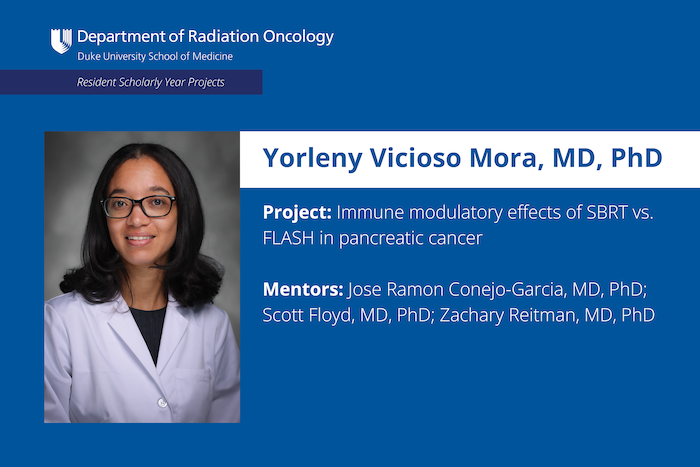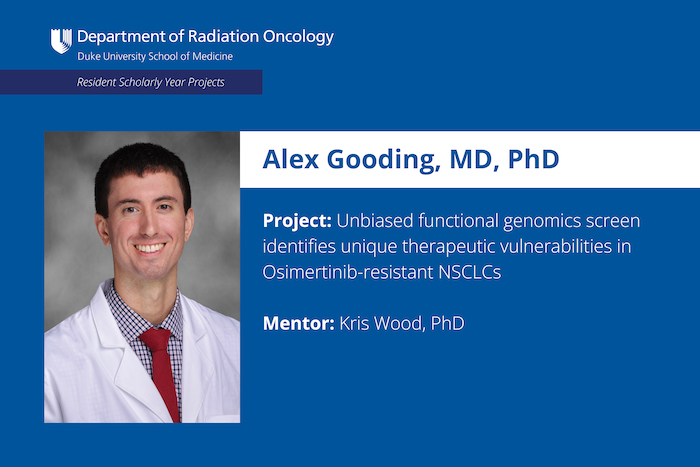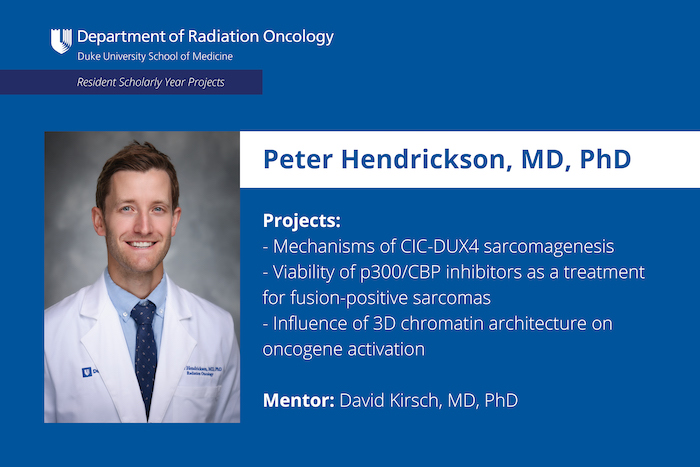
The RORS program combines a research intensive residency with an opportunity to continue mentored research after residency as an instructor for up to two years: A one year guaranteed instructorship with an additional year based on performance and allowing for a total of 45 months of dedicated scholarly effort. Although Radiation Oncology is one of the key cancer disciplines – along with surgical and medical oncology – it is the only one that does not have a specific track to guide trainees to become independently funded investigators.
While many of our Duke Radiation Oncology Residency graduates have gained important scientific skills that they have used in their careers, the RORS track will provide the time, structure and funding that provide a runway for trainees so that they can lead their own independent research lab after residency. The RORS track will leverage the resources of the Duke School of Medicine’s Office of Physician Scientist Development to provide all the resources necessary to maximize success. The RORS program is another example of Duke Radiation Oncology’s innovative resident education.
Read more about the RORS track or visit the Duke Office of Physician Scientist Development.
Director of the RORS Track
Physician-Scientist Cohort, RORS Mentors and More
Duke's RORS track featured in IJROBP

Salama JK, Floyd SR, Willett CG, Kirsch DG. Fostering Radiation Oncology Physician Scientist Trainees within a Diverse Workforce: The Radiation Oncology Research Scholar Track. Int J Radiat Oncol Biol Phys. 2021 Jan 4:S0360-3016(20)34746-5. PMID: 33412263.
The article discusses the lack of externally funded physician scientists and the RORS track goal of eliminating barriers preventing radiation oncology trainees from becoming independent physician scientists.
Steering Committee Members
RORS Scholarly Year Projects

Resident: Yorleny Vicioso Mora, MD, PhD (Class of 2027)
Project: Immune modulatory effects of SBRT vs. FLASH in pancreatic cancer
Mentors: Jose Ramon Conjo-Garcia, MD, PhD; Scott Floyd, MD, PhD; Zachary Reitman, MD, PhD

Resident: Mark Chen, MD, PhD (Class of 2026)
Project: Developing programmable synthetic condensate platform to define the role of condensates in tumor response to radiation therapy
Mentor: Ashutosh Chilkoti, PhD

Resident: Alex Gooding, MD, PhD (Class of 2025)
Project: Unbiased functional genomics screen identifies unique therapeutic vulnerabilities in Osimertinib-resistant NSCLCs
Mentor: Kris Wood, PhD

Resident: Peter Hendrickson, MD, PhD (Class of 2024)
Projects:
1. Mechanisms of CIC-DUX4 sarcomagenesis
2. Viability of p300/CBP inhibitors as a treatment for fusion-positive sarcomas
3. Influence of 3D chromatin architecture on oncogene activation
Mentor: David Kirsch, MD, PhD






